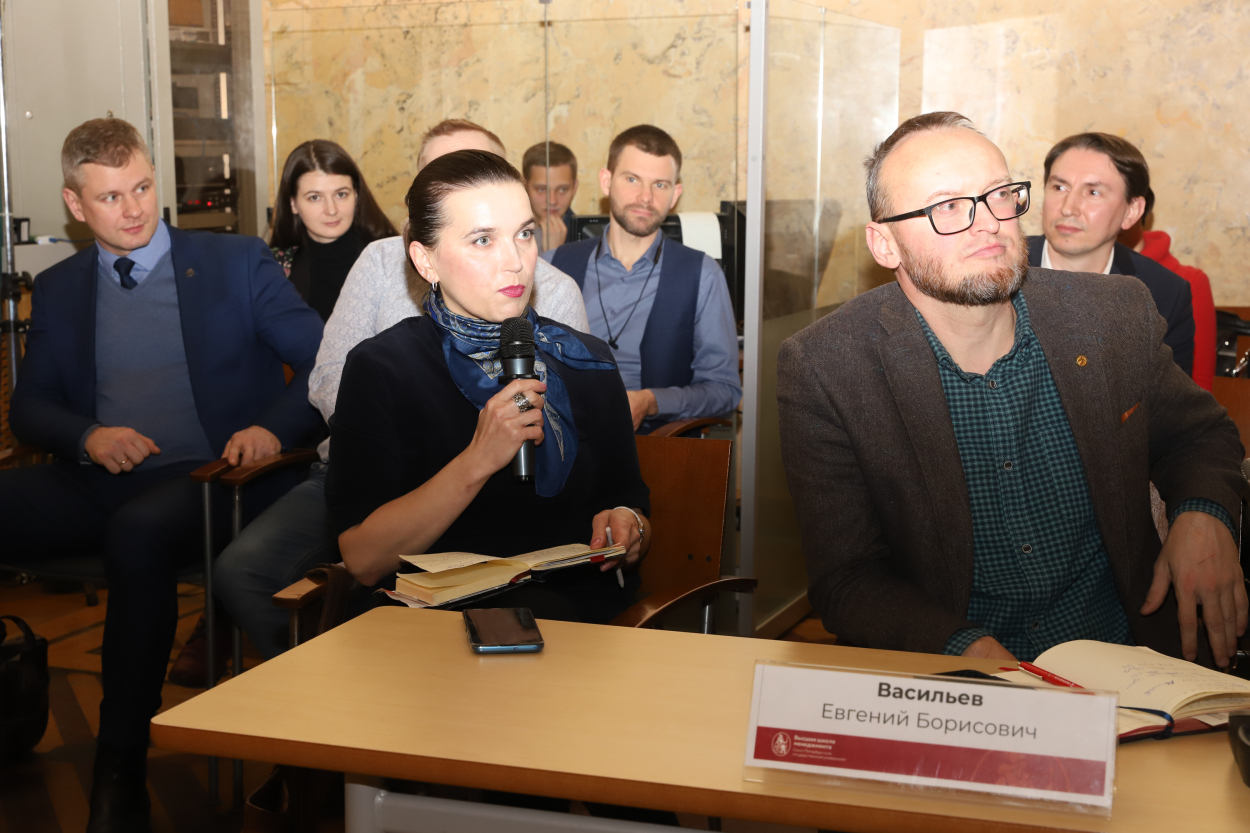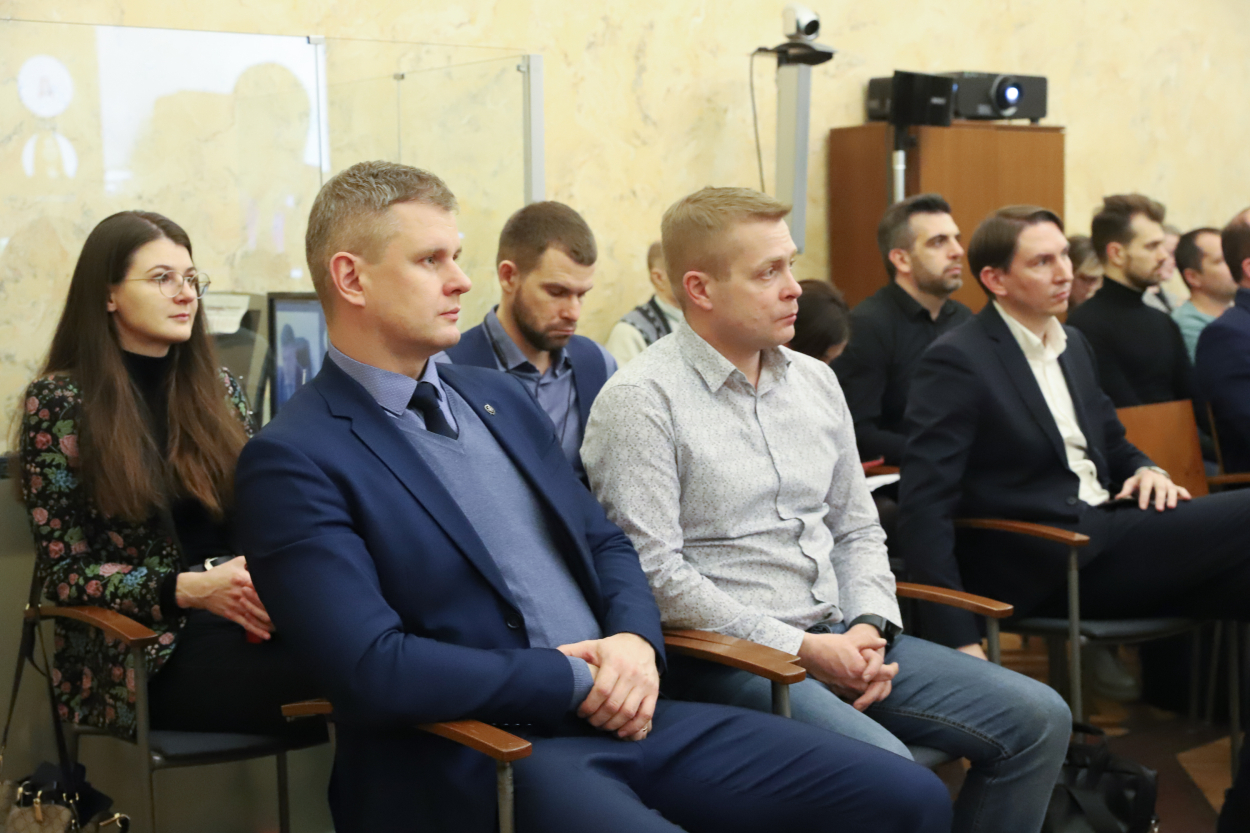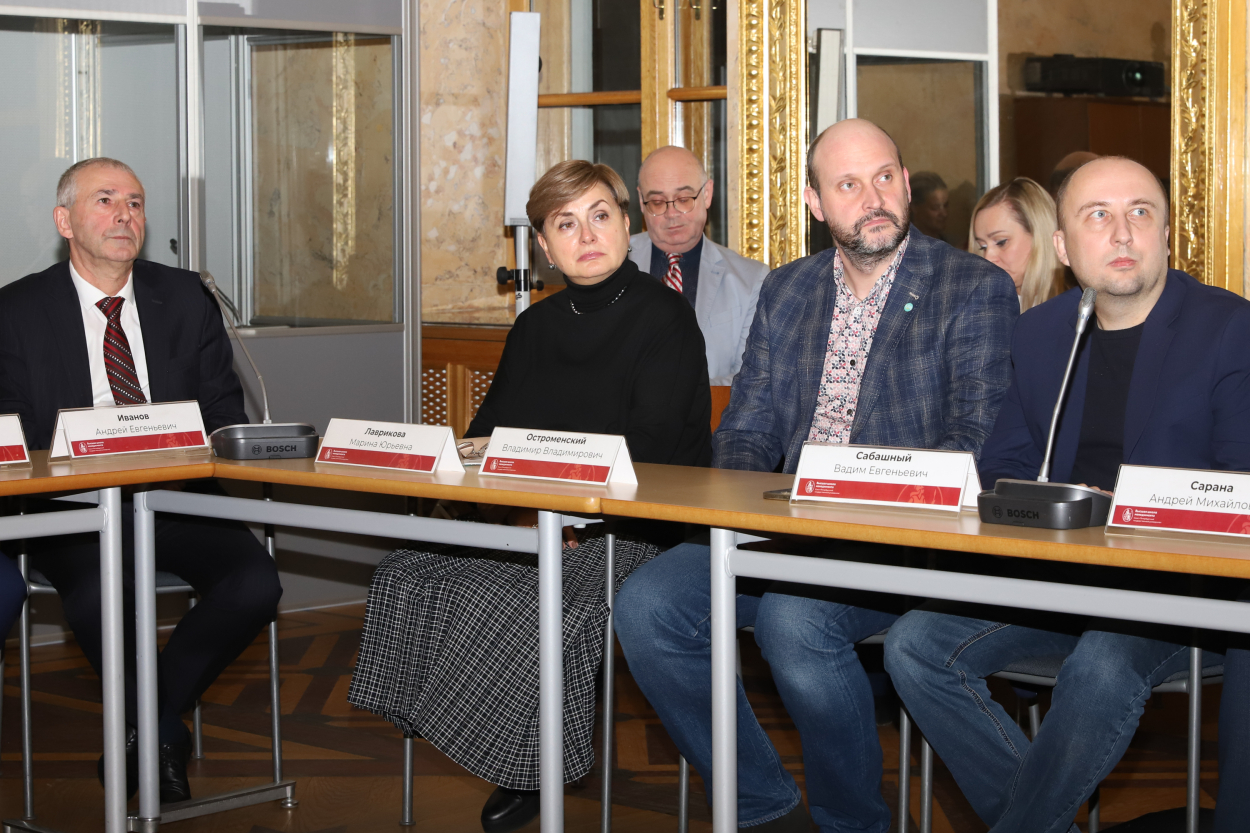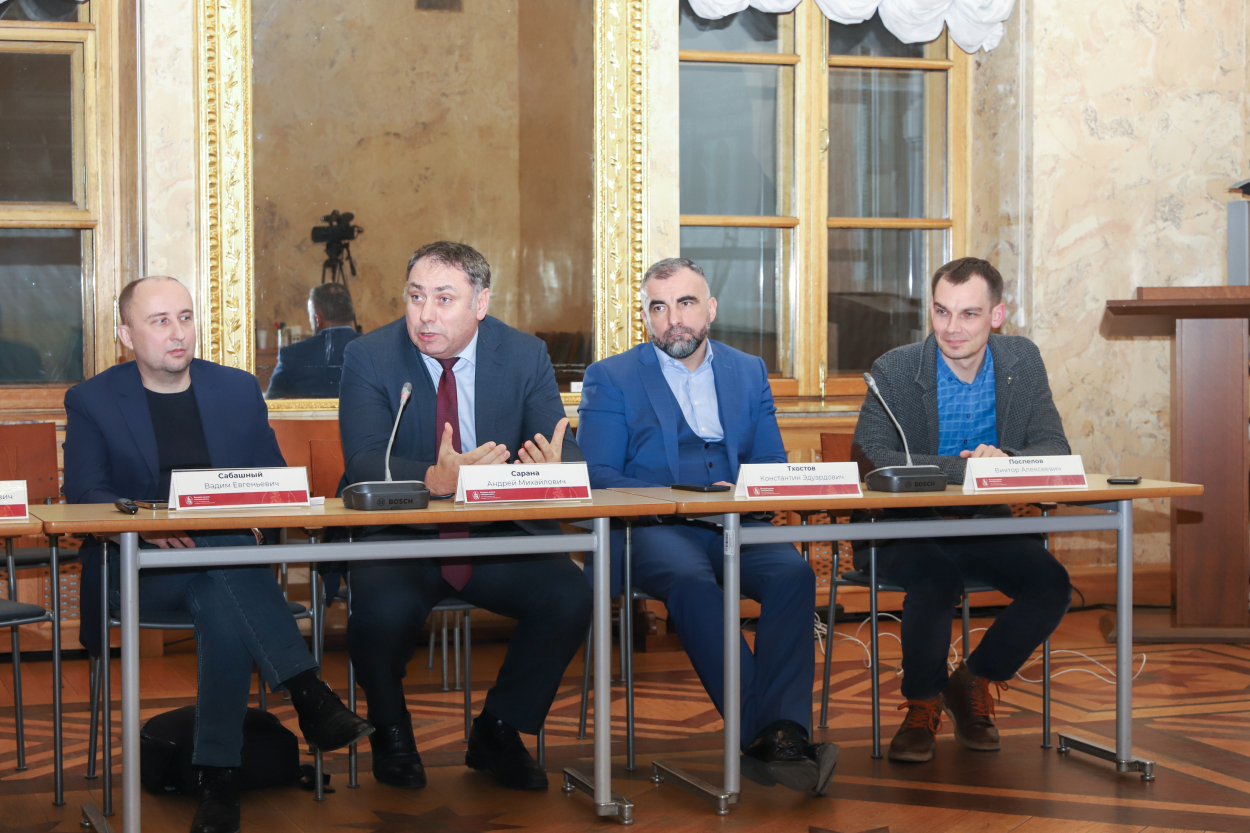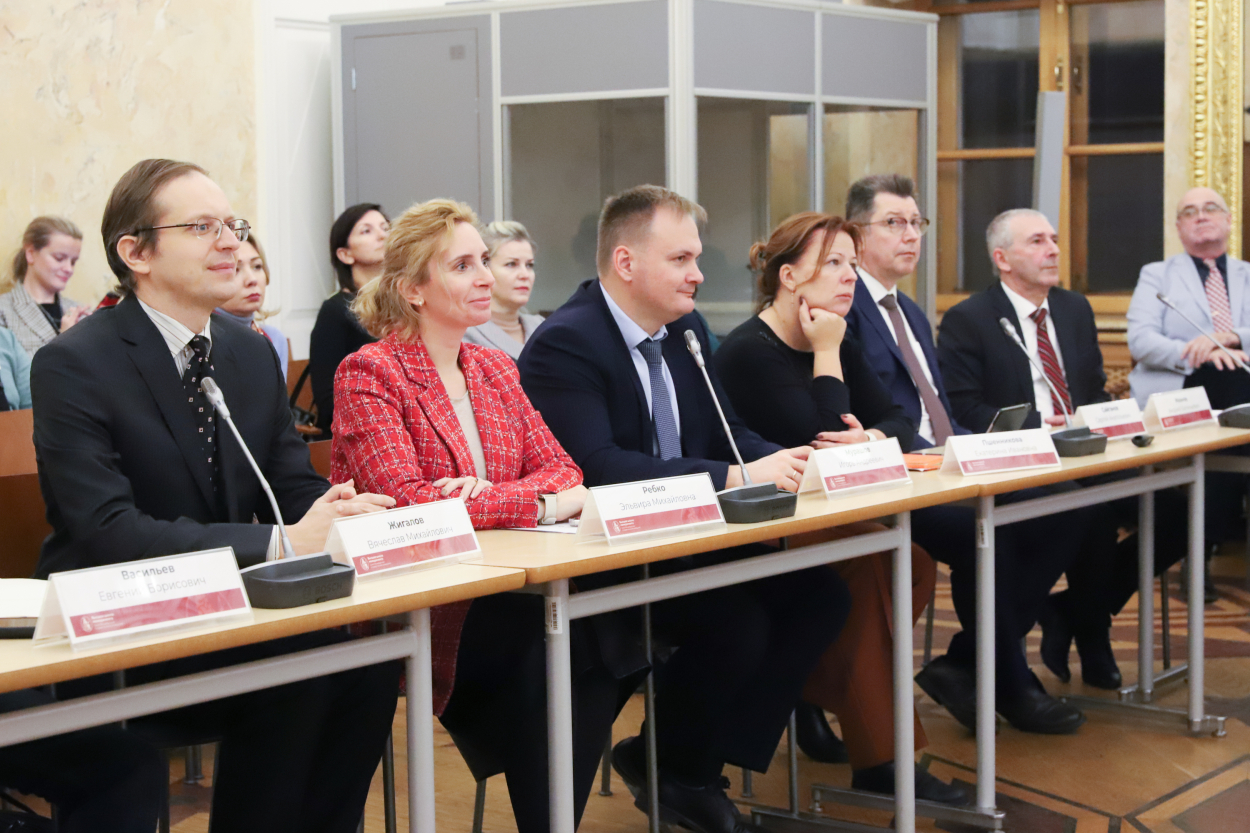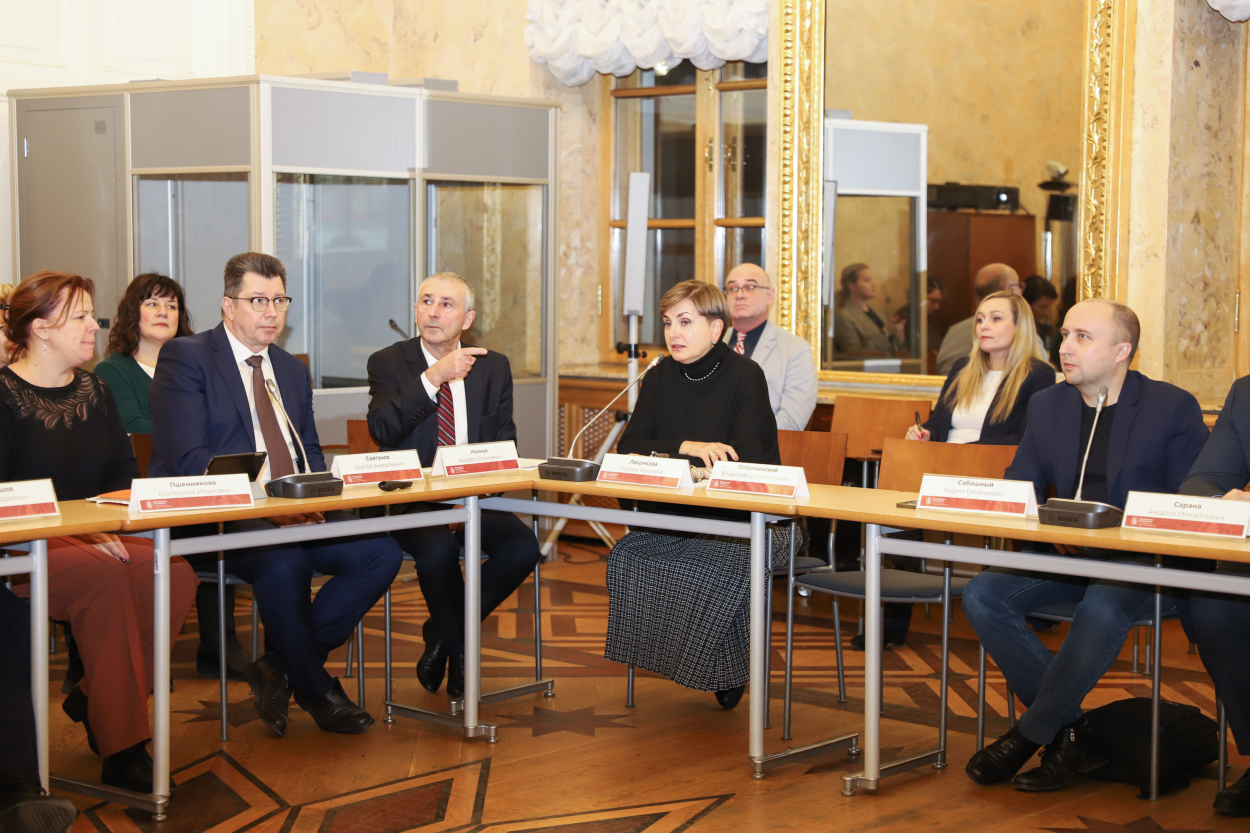Presidential Programme reforming issues discussed at St Petersburg University
A strategic session titled "The Presidential Programme requires the future" has been held at St Petersburg University. It was devoted to determining the main directions for reforming the Management Training Programme for Organisations of the National Economy of the Russian Federation.
The discussion was attended by: representatives of the academic community; government authorities; and graduates and students of the University’s presidential programmes. The event is dedicated to the 25th anniversary of the Presidential Programme. St Petersburg University has been a participant in this project since its launch in 1997.
Marina Lavrikova, Senior Vice-Rector for Academic Activities at St Petersburg University, delivered a welcoming address.
The Programme is aimed at maintaining the required level of qualifications and the relevance of the competencies of professional managers engaged in various state activities. At St Petersburg University, it is now being implemented in two aspects: the development of managerial competencies in entrepreneurship; and training of professional managers for public health service.
Marina Lavrikova, Senior Vice-Rector for Academic Activities, St Petersburg University
’25 years is a long period. A lot has changed, including the needs of the state. Even over the past five years, since the last reform of the Presidential Programme, the management itself has changed in terms of technologies, methods, and level of efficiency. And we also did something for that. The time has come to talk about how to update the training of managers to make it relevant and tailored to fit the times,’ Marina Lavrikova noted.
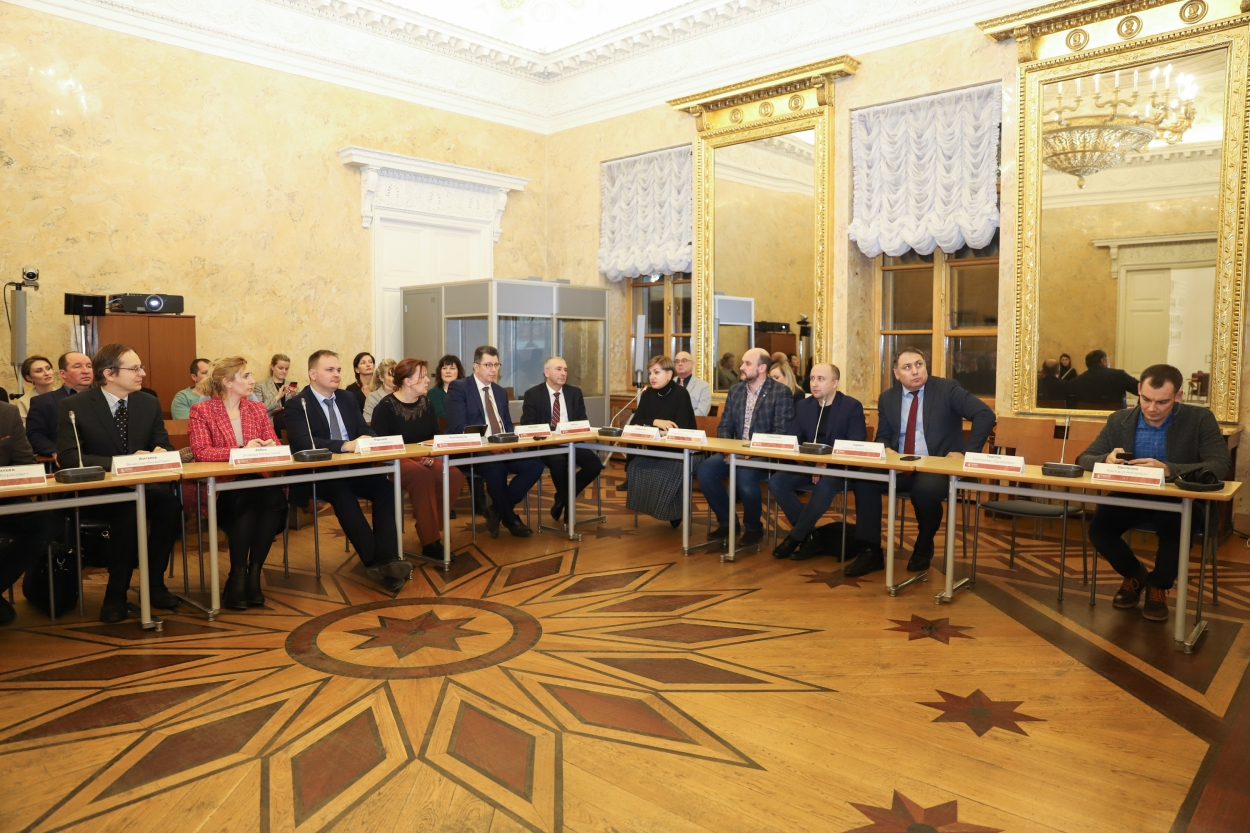
Aleksei Bunkin, Director of the Federal Resource Centre for Management Training, joined the meeting online and spoke about his vision of the programme’s future. ’Today there is a request from the Programme graduates to continue their training. Many of them would like to brush up on their skills and gain more practical knowledge. We also have received proposals for the development of international collaboration. Türkiye, Uzbekistan and Iran are our potential partners and they are eager to actively cooperate. Another focus area is related to the development of the alumni community. Such associations are already operating throughout the country, and there are good prospects for interaction between the different years’ graduates of the Presidential Programme.’
As the participants in the meeting highlighted, for the successful implementation and scaling of projects developed by students of the Presidential Programmes during their learning process, expert support is needed even after their graduation.
This kind of activity is implemented through various forms of post-programme work with the graduates, various round tables, conferences, open classes, and much more. According to the participants in the discussion, there should be testing of the pedagogical skills of successful graduates. After that, they should be engaged as teachers, academic advisors, and mentors for other students of the Programme.
’A very important area today is networking between the alumni, the University and business community representatives. Our surveys also show that,’ confirmed Viacheslav Zhigalov, Head of the academic programme "Management of Innovative Development and Entrepreneurship", Acting Head of the Department of Management and Planning of Social and Economic Processes at St Petersburg University. ’There are many potential areas for joint work. It is important for the University to: keep in touch with entrepreneurs; be aware of the problems that are of concern to them; and update courses within the programme so that they meet the challenges of the time. We need to constantly update the case study pool in order to teach our students using fresh examples from various national practices. And what is most important, new projects and collaborations are given birth to as a result of communication between entrepreneurs.’
Andrei Ivanov, Academic Director of the programme "Healthcare Management", Deputy Director of the Centre for Public-Private Partnership Studies at St Petersburg University’s Graduate School of Management, believes that the number of students should be increased for such programmes. Not only heads of organisations, but also civil servants should be enrolled.
This kind of practice has already been tested in St Petersburg. Civil servants were selected for presidential programmes and they studied together with heads of organisations.
Andrei Ivanov, Academic Director of the programme "Healthcare Management", Deputy Director of the Centre for Public-Private Partnership Studies at St Petersburg University’s Graduate School of Management
’In order to make this practice permanent and more widespread, we will need to change the concept of the financial model for the entire programme. As of today, the regional and federal budgets pay two-thirds of the cost of training, while the remaining one third is paid either by the student themselves or by the organisation that has sent them to study. It is impossible to send civil servants to study in the Presidential Programme, since their training will be entirely state-funded. Under the current conditions, this problem can be solved through educational vouchers and self-funded education. The academic programmes we offer deserve to be paid for,’ Andrei Ivanov shared.
According to Igor Murashev, Deputy Chairperson of the Committee on Public Service and Personnel Policy of the Administration of the Governor of St Petersburg, the practical component of presidential training programmes for professional managers should be implemented from the first days of training. ‘We are speaking about training experienced specialists. Personally, as a leader, I would be interested in taking an internship first, to see how others have organised their managerial processes. Only then I would immerse myself in the theory, to find out how to achieve that’.
Ekaterina Pshennikova, Deputy Chairperson of the Committee for Economic Development and Investment Activity of the Leningrad Region, came up with an idea to further develop interaction between higher education institutions and state authorities. Among other things, representatives of regional authorities can act as experts or guest lecturers and provide students with reliable information about various features of the region and strategic plans for its development. This approach will allow building an effective relationship between the authorities and business managers.
More than 600 heads of organisations representing 28 regions of the country were issued St Petersburg University’s professional retraining diplomas. They are graduates of the Presidential Programmes "Management in the Social Sector" (until 2009), ’Management in Healthcare’, and "Management of Innovative Development and Entrepreneurship". In the course of their training resulting in final assessment, students develop and defend projects aimed at: improving the efficiency of the organisations that have sent them to study; and improving the efficiency of the regional economy as a whole.
The following proposals for reforming the Presidential Programme were supported during the strategic session: attracting civil servants for training; expanding the scope of training for social leaders; increasing the tuition fees (which have not been reviewed for ten years); and reducing the volume of the curriculum for the programmes being implemented. All proposals will be sent to the Russian Ministry of Economic Development and the Federal Resource Centre for Management Training to prepare the reform of the Presidential Programme for the period after the 2024/2025 academic year. The Presidential Programme is always extended for a fixed period of time. Then, it is reviewed and reformed in accordance with market demands and the needs of the economy.


